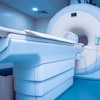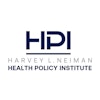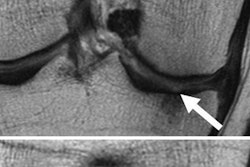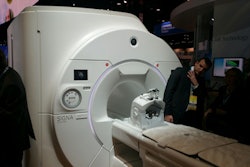Dear MRI Insider,
While time spent at the International Space Station is scientifically valuable, the trade-off is that environmental conditions, such as weightlessness, can cause health problems for astronauts.
With the help of MRI scans, researchers from the University of Miami observed a link between the duration of time spent in space and a condition known as visual impairment and intracranial pressure (VIIP) syndrome, in which the globe of the eye flattens and the optic nerve can protrude. The condition worsens the longer astronauts stay in space and the effects can linger long after they have returned to Earth.
Our Insider Exclusive discusses the physical causes of VIIP and how the information might also help less-adventurous earthlings with their vision problems.
In other news, while there's little doubt that being overweight can be detrimental to the body, MRI scans have shown that obese people who lost more than 10% of their weight over four years have significantly less knee cartilage deterioration.
Another reason to stay in shape comes from researchers in the U.K.: They combined MRI with machine-learning algorithms to develop a "brain age" score that could provide insights into which patients are at risk for poor health and may die at an early age. The greater difference between one's chronological age and brain age may indicate health issues -- and, possibly, a premature demise.
To take better advantage of the time we have on this Earth, researchers have devised a quick five-minute shoulder MRI protocol that still produces diagnostic-quality images. One prerequisite is having the latest generation of 1.5- and 3-tesla scanners with the ability to perform parallel imaging.
Breast MRI is a valuable tool in routine clinical practice for a spectrum of women with an elevated risk for breast cancer, according to a new study. The results shed light on how women who have higher than average risk for less-conventional reasons, such as a personal history of breast cancer or a history of high-risk lesions, can also benefit from screening.
Make a visit to the MRI Community at AuntMinnie.com part of your daily routine for the latest news and groundbreaking research from around the world.




















